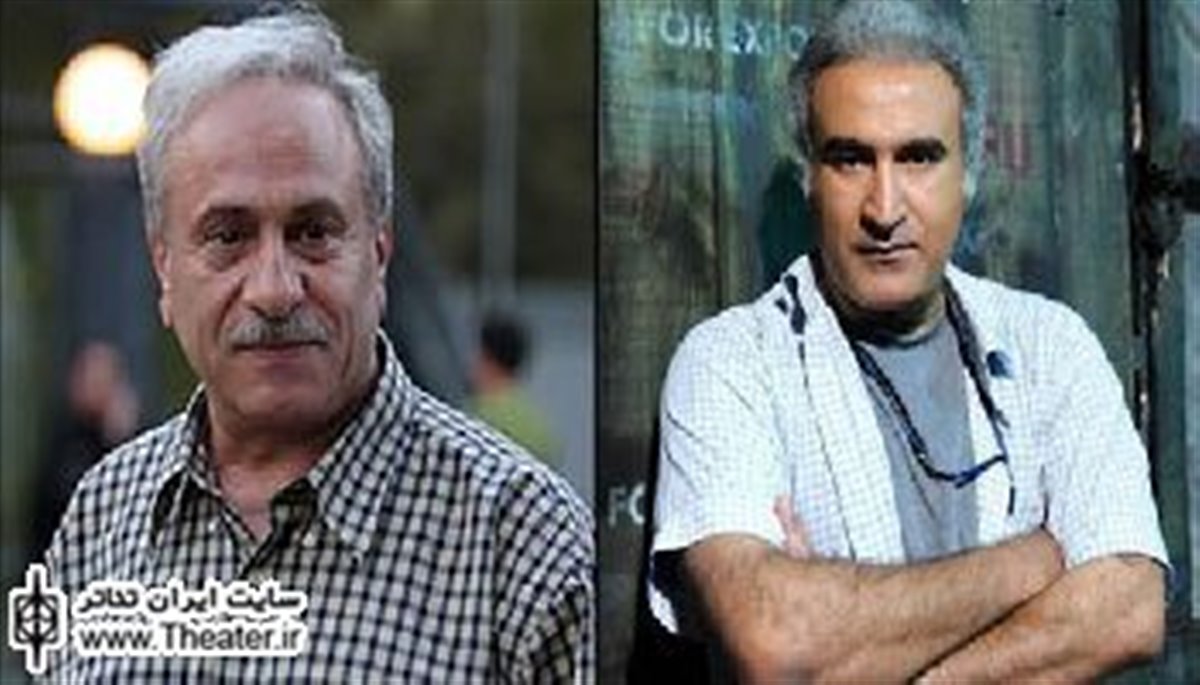Comments by Hammid Reza Naeimi and Iraj Rad after watching the play “Pythian Oratorio”
30Jan2014

The play “Pythian Oratorio” directed by Wlodzimierz Staniewski, a famous Polish director, has been staged at the sixth day of the 32nd Fadjr International Theater Festival with the attendance of the director general of Performing Arts Affair and a group of artists.
According to the Iran Theater, the play “Pythian Oratorio” is adapted from a 4-phase joint cultural-artistic project planned by Polish Gardzienice and Iranian Av theater groups. The Gardzienice group originates from a small village located in Eastern Poland, which makes it as one of the important places on the theater world map.
Hamid Reza Naeimi, one of the Iranian theater directors who came to watch the play “Pythian Oratorio”, evaluated the performance in an interview with Iran Theater: “Wlodzimierz Staniewski who could be considered as the greatest students of Grotoswski with his own style, tried to stage a performance based on studying the rituals, customs, music, folk songs and stories of various countries in the world.”
He continued while reminding that this play isn’t only a narrative work: “The play “Pythian Oratorio” is based on song, body movements and dance, and its director formed the ritual aspects into his own style and shape. It couldn’t be said that the play indicates completely a pure specific ritual with all its details. For instance, we have Zar religious custom in the country, but it has been staged almost as it is without any adaptation and change. However, we witness an interpreted adaptation of a given ritual in the Staniewski’s work.”
Mr. Naeimi reminded by posing the question, “if you now ask me as a viewer of this performance, about what I received?”: “I might not express a clear story or view of the work; however, I could just say that this performance works like a magic. When the magic happens, an incident or an alternation would originate from you or pass you; as that incident would just lead to creation of a specific emotional sense. However, it isn’t clear that if the magic induces a particular perception or sense in reality.”
The director of play “Soghrat” said while addressing the use of various cultural and ritual customs by the group: “Primarily, it is the tradition of this theater group to inspire from various cultures, their ethnic symbols and characteristics, native features of where they perform. However, it seems difficult at first, but it isn’t anything special after years of practice as we see in the work of this theater group. Unfortunately, the domestic people of theater has still faced some difficulties to implement such those experiences, since we haven’t any experimental theaters to accept novel ideas as such.”
In conclusion, Naeimi explained about the attractions of the play “Pythian Oratorio”: “It is possible that a common theater audience doesn’t attract to such performance, as he might compare it with conventional performances he have seen before. Certainly, such a novel work would have different feedbacks both by critics and audiences. I believe that theater should be a platform for creative and distinctive attempts. I enjoy watching such wonderful figures, unprecedented voices, coordinated songs, and costuming design.”
Further, Iraj Rad, the chairman of Iranian Theater Forum, as one of the audiences considered this performance as a distinguished work: “The play “Pythian Oratorio” has ritual background, and tried to inspire its themes into the audiences using unique body language and songs. However, it was hard to understand the original language of the play, but the translation presented on the screen and participation of several Iranian stage players in the performance helped us to receive the concepts. Regarding the theme and story, the play communicated well with its audiences, and it appeared a lively and visual-effective work.”
He also expressed: “There are different forms and variants of theater. Therefore, seeing works with exclusive form, technique, and performance could have positive impacts on the artist.”
It is worth noting that several Iranian famous artists including Mohammad Rahmanian, Hamid Reza Naeimi, Iraj Rad, Jahanbakhsh Soltani, Mohammad Hatami, Farzaneh Kaboli, and Bahram Shah Mohammadlou have also attended the performance of “Pythian Oratorio”.